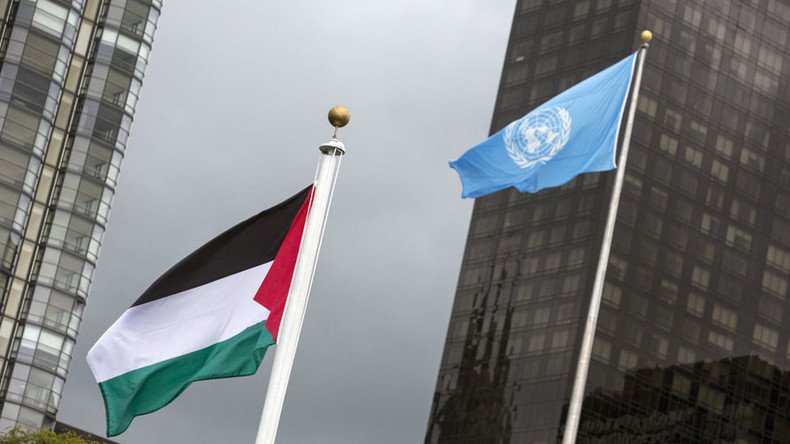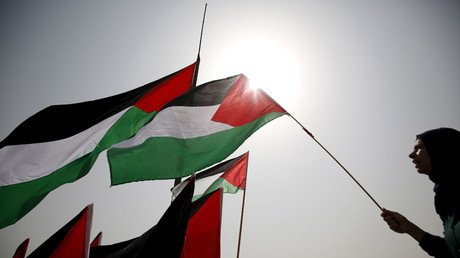Recognition of Palestine inseparable from peace talks with Israel – FM to RT

Palestine hopes a French initiative to revive peace talks between it and Israel will be backed by major world powers, including Russia, saying recognition of statehood is not a “political risk” but a “value,” Foreign Minister Riyad al-Maliki told RT.
“We said yes, absolutely [to that idea] raised by the former [French] foreign minister Laurent Fabius. Not only had we said yes, we lobbied for it. We wanted the negotiations to start and we felt that the lack of negotiations undermines the peace process and the situation on the ground,” Palestinian Foreign Minister Riyad al-Maliki told to RT.
The exclusive interview came ahead of Monday’s Moscow meeting between Russian President Vladimir Putin and his Palestinian counterpart, Mahmoud Abbas. Discussions on bringing long-standing foes Israel and Palestine to the table again, as well as the other countries concerned, was said to top the agenda.
French President Francois Hollande said after a meeting with Abbas last week that the new summit would help pave the way to lasting peace in the region if it is supported by world powers and Palestine’s neighbors.
“The meeting that we’ve had with Holland was very positive,” Foreign Minister al-Maliki told RT. “Of course, he relies heavily on … collective support [from the Arab states] and beyond. We’ve also had previous discussions with Russian authorities on the French idea [in hope to] get full support from President Putin.”
Following the meeting with Abbas at the Kremlin, President Putin said Moscow will offer “unconditional support” to Palestinian efforts to promote a peaceful solution to the decades’ long conflict, according to TASS.
However, the much anticipated conference may stall, as Israel seems unwilling to discuss any option involving a two-state solution, which implies the existence of the State of Israel and State of Palestine within pre-1967 borders, with East Jerusalem as the Palestinian capital.
Earlier in March, the Washington Post quoted Israeli PM Benjamin Netanyahu as saying that he still believes a sovereign Palestine would come as “not a state next to Israel, but a state instead of Israel.”
Commenting on international recognition of Palestine as a state, Foreign Minister al-Maliki said “it’s not really a political risk, it would rather be a value to the international community.”
“We feel that recognition of the Palestinian state is a plus to such [Western] countries, especially knowing that their public opinion is in favor of recognizing the state. You can’t separate it from the resumption of talks or the international conference; it’s an integral part of it.
“This is why we immediately said yes to the French initiative, because its failure – or success – will bring recognition from France. And we know that if France recognizes Palestine, it will make five to six other European countries [to recognize it as well].”
European Parliament votes to recognize Palestine statehood 'in principle'
Palestinians are also pushing for a new UN Security Council draft resolution that defines Israeli settlements as illegitimate and strictly condemns their expansion. This is very likely be vetoed by the US, however, as it has repeatedly rejected resolutions considered unfavorable to Israel. However, there has been speculation that, this time, President Obama could change tack and let the resolution pass.
Al-Maliki said he did not believe that US contributions to the new talks would make a difference.
“Look, Obama had eight years to push for peace process. He might show us greater interest to move things [and now] it will be too late for that to happen. We expected him to be involved from the beginning, he promised us to be. [Although] he said that the [Jewish] settlements are illegal, day after day, year after year such position was disappearing,” he said.
Peace talks between Israel and Palestine have been at a standstill since the last US efforts collapsed two years ago. Both Abbas and Netanyahu have expressed interest in meeting with each other over the past weeks, but neither side has made a public move to jump-start negotiations.













